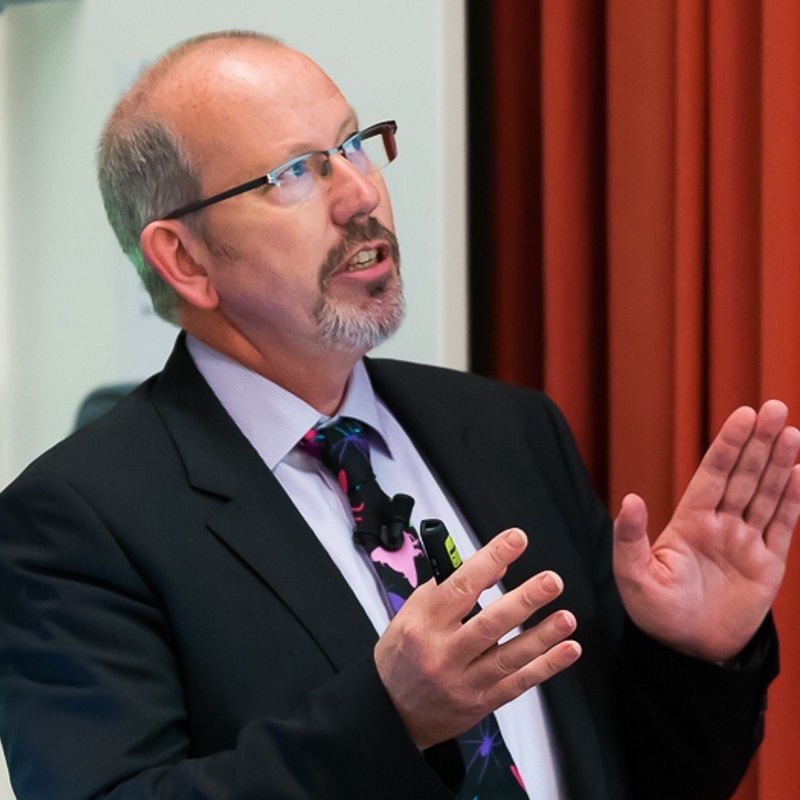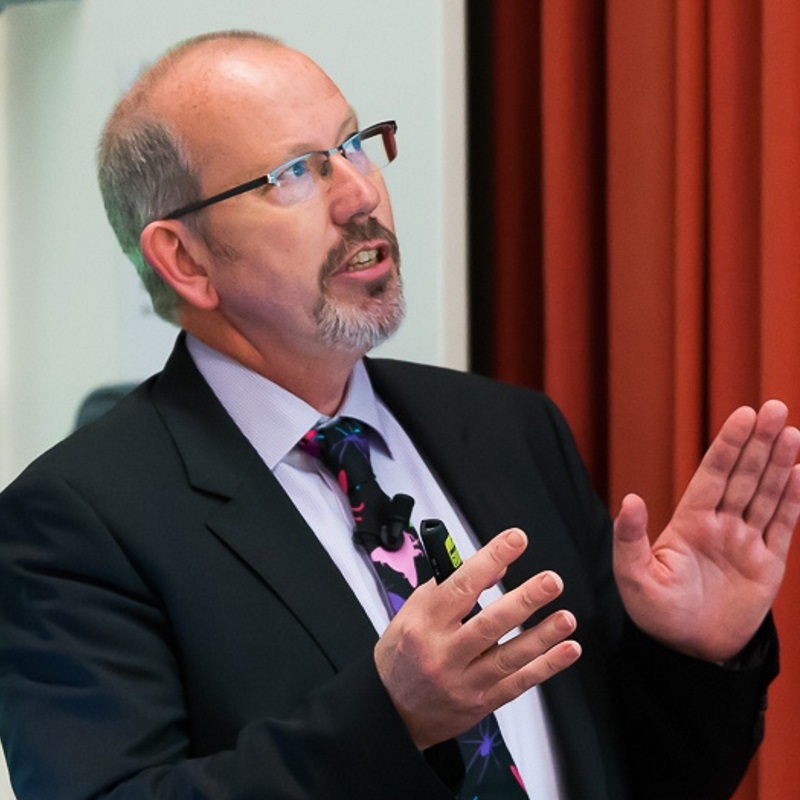Tim Benton is Professor of Population Ecology at the University of Leeds and a member of the Philosophical Transactions B Editorial Board. Here, he talks to us about some of his diverse research interests.

Tell us a bit about your research.
My research interests are broad, but split into two essential strands. The first is understanding how changing environments create changes in population dynamics. Much of this has been very blue skies work, coupling models to a model empirical system, a soil mite. The second strand is to understand the relationship between agriculture and its environmental impacts, and understanding what “sustainable agriculture” might be and how it interacts with sustaining ecosystem services. In a sense, these two strands are, of course, related: one theoretical, one practical, but both about understanding sustainability and resilience to perturbations.
For the last four years I have also have the privilege of working across the public bodies in the UK (research councils, government departments, Scottish and Welsh governments as well as Westminster) with an interest in the challenges of food security. This work involves a very broad brief from nutrition and health via agriculture and climate change to international development and trade. I have, therefore, a very keen interest in the way that science can address some of the key challenges of today, in a sustainable and equitable way, and how knowledge research generates gets used.
What prompted you to work in this area?
When I was “nobbut a lad” as they say in Yorkshire, I developed a keen interest in pure ecology: ecology of the “pristine environment” framed from the viewpoints of ecological and evolutionary theory. My theoretical ecology approach followed from that. In the 90s we began to realise how changing food levels had profound effects on my model animal’s life history. In particular, hatchling mites with little food suffered slower growth but given food later on could catch up better fed peers, but then they survived as adults for shorter time. At the time, there was widespread interest in the decline in farmland birds and I started to think about the link between food for fledglings, growth and survival and long term dynamics. I thus crossed the divide to “real world ecology”. I quickly learned that, given the pressures of a growing human population, and increased demand for food, agriculture was globally the biggest ecological threat…and since then, understanding the food system, and thinking about how to encourage sustainability, has been the main thrust of my thinking.
What has been the biggest influence on your career?
Meeting people and being encouraged to take risks. I have been privileged to have interacted with many, many stimulating people, and my focus has changed as a result. I have frequently changed jobs and roles, and have had spells out of full-time academia (publishing, TV and now the food security role). I have been exposed to many new experiences and ways of framing questions, and interacted with many different stakeholders. All have shaped the questions I am interested in, and perhaps most importantly, the way they are framed. As a PhD student, the ethos was “those who can, do real research, those who can’t, do applied”. My view now is that it is perfectly possible to do very creative, cutting edge research under the umbrella of strategic research.
What are the big challenges still remaining in your field?
How to manage growing demand in a finite world, whilst maintaining enough ecology to make the planet worth living on.
Why did you join the Editorial Board of Philosophical Transactions B?
Having been a full time editor at Cambridge University Press, I learned a lot about writing and editing. I was also editor in chief for the journal Oikos for a few years, and enjoyed seeing the breadth of ecological endeavour across the 1000 or so manuscripts that passed the desk each year. When I took on the global food security job, I dropped most editing to make time. Thus, when I was asked to join the Editorial Board of Phil Trans B, I had the space and inclination. Much of the impact of my career has been made by undertaking synthetic reviews that contribute to reframing an area, and so I have an inherent love of journals that stimulate discussions of “the big picture”. Phil Trans B is a great journal for this reason, and I love it.
What advice would you give to someone who want to edit an issue for Philosophical Transactions B?
The more time you invest in working with authors to get an integrated whole, and the more time you spend “designing” the issue, the more you’ll have an impact.
What do you do in your spare time?
Ha, ha, ha. You’re joking, right?

